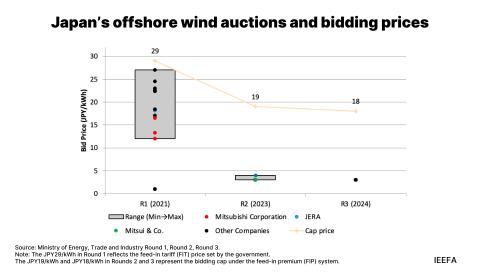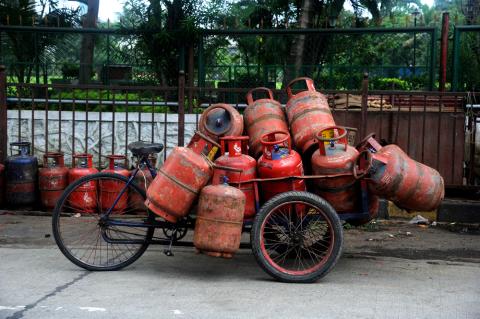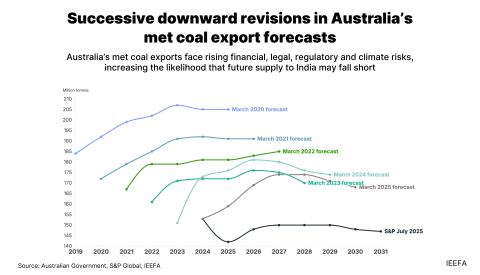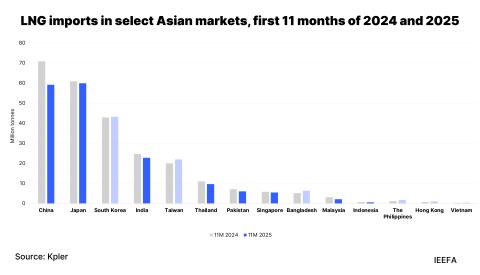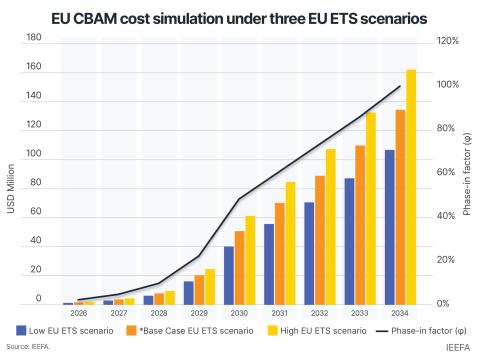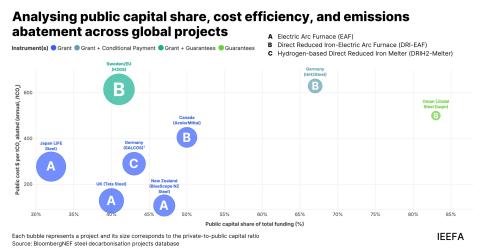IEEFA update: A perilous rush toward natural gas dependency in Puerto Rico
IEEFA is urging the Financial Oversight and Management Board (FOMB) of Puerto Rico to halt the rush to natural gas infrastructure development in Puerto Rico.
We’ve sent an open letter to board members warning this ill-advised strategy after recent news reports of PREPA discussions around potential new liquefied natural gas import terminals—at San Juan, Mayaguez and Yabucoa—new natural gas power plants at Cataño and Yabucoa, and the conversion of two units of the San Juan power plant to natural gas. Additionally, the Puerto Rico Senate has recently passed a resolution asking for a waiver of the Jones Act in order to facilitate the transport of liquefied natural gas from the U.S. mainland. And in testimony to the Puerto Rico Senate, the CEO of PREPA promoted an island-wide transition to natural gas.
Renewable energy and investment in distributed energy infrastructure remain on the back burner, as has historically been the case in Puerto Rico, despite legislative mandates to the contrary and although common-sense policy would have the island harvest its abundant sunshine rather than continuing to rely on imported fossils fuels for electricity generation.
Ignoring the value in resilient, renewable, decentralized energy technologies.
The aggressive investment in natural gas that PREPA is contemplating would crowd out investments in renewable energy and distributed generation, and it stands in sharp contrast to high-level policy consensus in favor of renewable energy—policy endorsed by the FOMB by way of its approval of PREPA’s fiscal plan.
Our letter lays out why the proposed natural gas developments will not result in the 40% reduction in electric bills claimed by PREPA leadership. Barring truly meaningful contracting reform at PREPA, ratepayers are likely under the proposal to be burdened even more than they already are by high-priced power.
As Puerto Rico modernizes its obsolete generation infrastructure in the coming years, it has an opportunity to move away from the fiscally destabilizing, centralized infrastructure of the current system—infrastructure that is poorly configured to withstand severe hurricanes—and toward one rooted in resilient, renewable, and decentralized energy technologies.
Prioritizing 20- to 25-year contracts for natural gas generation, including new infrastructure at Yabucoa near the southeastern coast of the island and far from northern load centers, would also stifle the kind of investment needed to create a resilient and renewables-based electrical system.
The current push for natural gas development also the risk in the electric system privatization process that Gov. Ricardo Rosselló signed into law this summer.
By leaving decisions on which assets to privatize, which requests for proposals to issue, and how to negotiate contracts entirely under the control of the governor, PREPA, and the Puerto Rico Fiscal Agency and Financial Advisory Authority, privatization promises to open the door to more politically-driven business, rather than resulting in a professionally planned and financially viable electrical system.
Here’s the full text of our letter to the FOMB.
Cathy Kunkel is an IEEFA energy analyst. She can be reached at [email protected].
RELATED ITEMS:
IEEFA update: Rampant political hiring at PREPA only makes matters worse
IEEFA update: Is a pay-to-play racket driving Puerto Rico to ruin?



